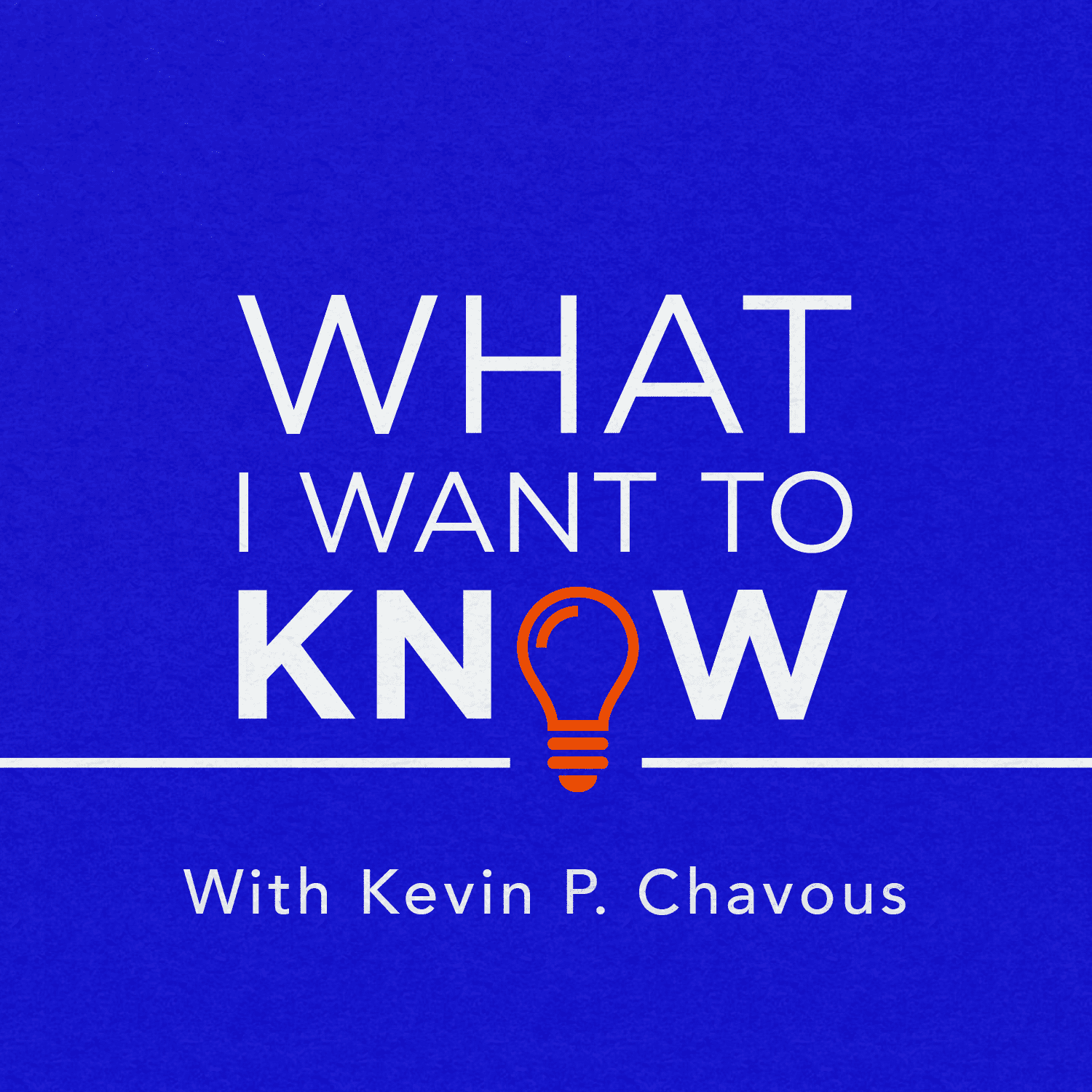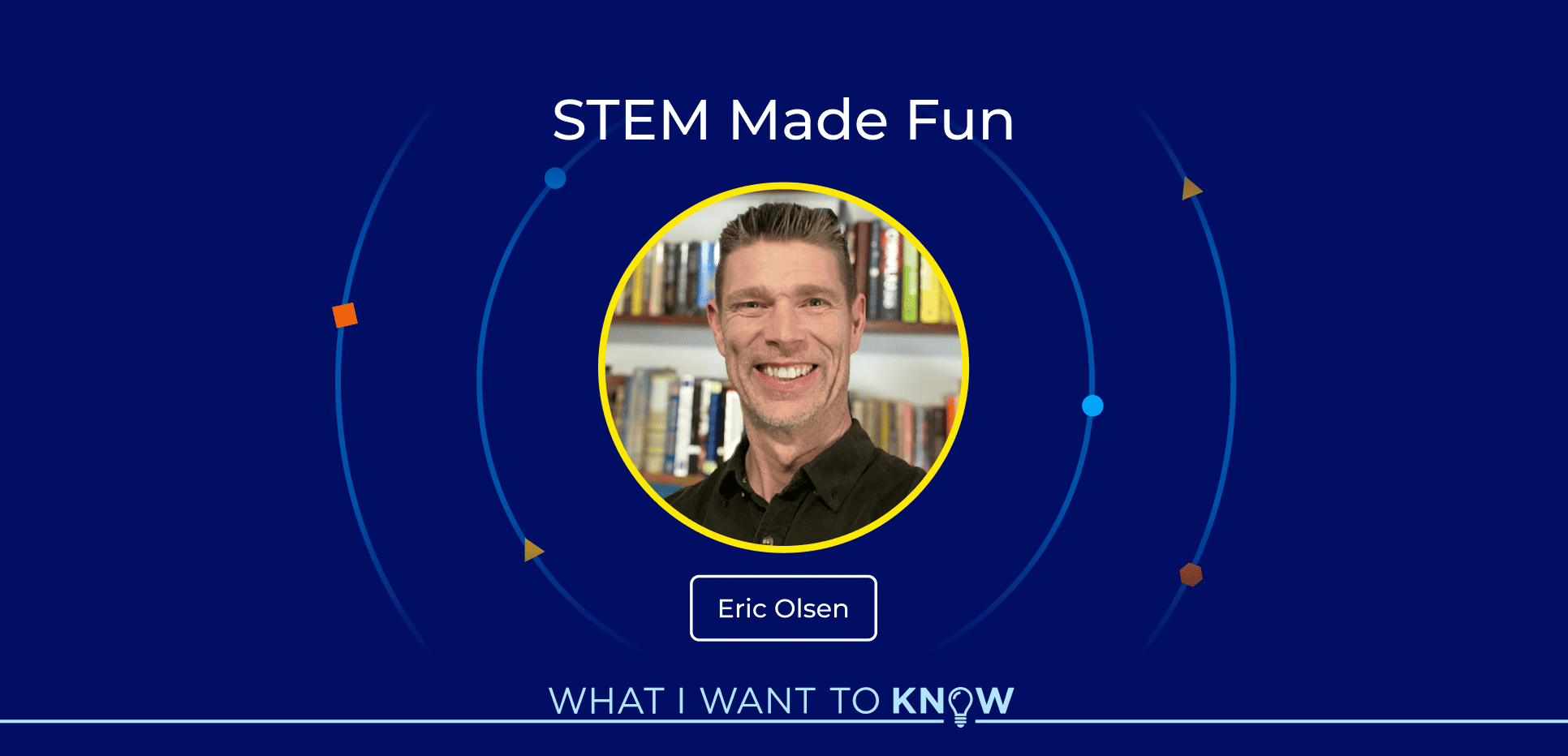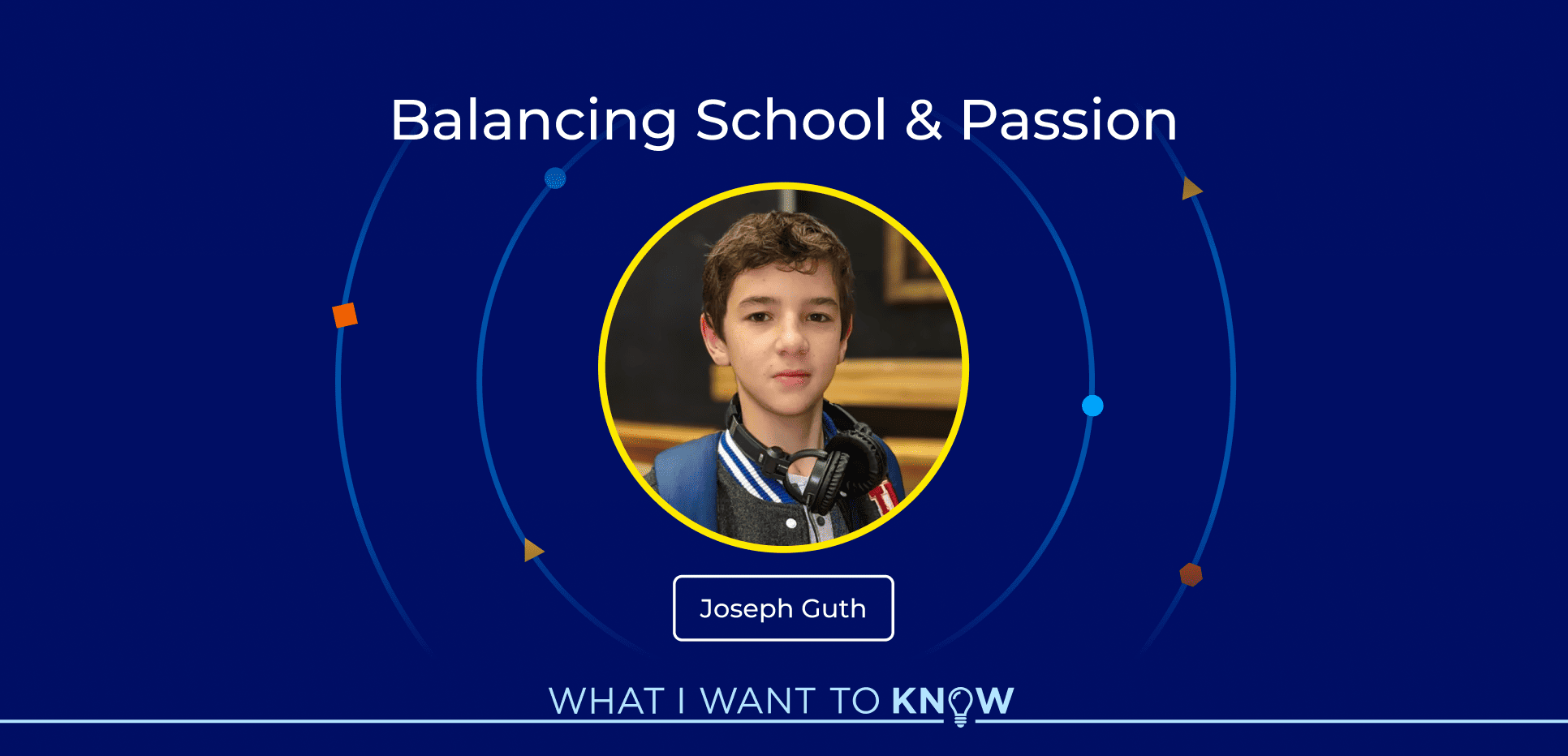According to a recent EdBuild study, majority-nonwhite districts nationwide receive 23 billion dollars LESS in funding yearly than majority-white districts, despite serving the same number of students.
Funding affects the quality of school facilities and access to up-to-date instructional materials. This gap impacts students’ education and perpetuates racial and economic inequities in the country.
How can technology create a more equitable education for all students?
Can the metaverse help break down barriers when it comes to learning opportunities?
In what ways will the metaverse define the future of education?
In this episode, Kevin discusses the educational opportunities of the metaverse with Vice President of Education at Roblox, Rebecca Kantar.
Listen to the Full Audio
Listen on: Apple Podcast, Spotify
Transcript
Kevin: According to a recent EdBuild study, majority non-white districts nationwide received $23 billion less in funding every year than majority white districts, despite serving the same number of students. Funding not only affects the quality of school facilities but access to up-to-date instruction materials as well. This gap impacts students’ education and perpetuates racial and economic inequality. How can technology create a more equitable education for all students? Can the metaverse help break down barriers when it comes to learning opportunities? And in what ways will the metaverse define the future of education? This is What I Want to Know, and today I’m joined by Rebecca Kantar to find out.
Kevin: As a two-time founder, Rebecca Kantar is an entrepreneur in education. Early in her college career, Rebecca founded BrightCo to connect talented young people with leading brands and investors. Four years later, she founded Imbellus, an edtech startup that developed simulation-based assessments to replace traditional standardized testing models. Now, as the vice president of education at Roblox, Rebecca works to make schools relevant, practical, and interesting to students. She joins us today to discuss the educational possibilities the metaverse offers for all of our kids. Rebecca, welcome to the show.
Rebecca: Thank you. Thanks so much for having me. It’s an honor to be here.
Kevin: You have had a pretty interesting and illustrious career, even though you’re still young in your career. I’m sure you also get reminded of that. But I wanted to walk you through not just your work at Roblox, but going back to your legendary time at Harvard where you felt very frustrated and decided to leave that esteemed university, which served as a backdrop for a lot of your work going forward. Talk about what led you to that internal realization that where you were really didn’t work for you at that time.
Rebecca: Sure. It’s probably not as premeditated or well-thought-through a journey as one might hope. But in hindsight, as I’ve reflected on it, I think first and foremost I was just deeply unhappy during my college years. I was unhappy because, during my high school years, I had the privilege of working with a number of my peers on understanding and researching how child sex trafficking in the United States and other markets happened; why it happened; why it was so hard to make progress in killing off the child sex trade at this day and age.
And that work exposed me to this entire community of other young people who had kind of self-actualized early and figured out that they could build something and have some real impact maybe not at a global scale yet, but at least in their communities, that they could do far more than what they were being asked of in terms of their traditional roster of academic coursework. When I was at college, I felt like a lot of the work I was asked to do was a lot more like doing AP courses again, as opposed to further exploring the more applied. Can you actually make a difference?
Can you bring all your skills to bear in service of reducing other suffering, in service of contributing more to communities and societies? That’s what prompted me to first take some time out of school, and then to eventually decide that I was never going back.
Kevin: Well, and beyond the philosophical setting in universities and the intellectual discourse, you came to understand that from a systemic point of view, the way we set up our educational system, the way we set up who gets anointed, who doesn’t, the way we test kids — it all reeked of inequity. You’ve talked about that even in some of your lectures today.
Rebecca: Not just inequity, but I think it just falls short of what folks hope and think the system is actually like. It’s not the fault of anyone in the system, and I want to be really clear about that. I don’t think that there’s this one bogeyman of, if only we had X, Y, or Z, things would be better. I think it’s a system like any other that responds to incentives. And when the incentives are such that you have these tests, where I started to focus, these tests at the end of each year, and I think those tests are important to our system to maintain an overall sense of what’s happening; how are students progressing, and how do different districts do at trying to advance their most marginalized students?
I think if you don’t measure that, you can’t track it well. But I think what’s on those tests matters tremendously, because the nature of what we test and how we teach is entirely dictated by the creations of a handful of organizations that decide how best to represent whatever slate of state content standards those tests are supposed to be evaluating. But sometimes I think the last mile translation from what we’re supposed to be understanding, whether or not a student has grasped it to what’s the right item type or the right test format or medium to try and get at that understanding; that’s where I think things fall apart.
I was excited about trying to get into the system and approach this lever of our incentives that determines a whole lot about what comes before them, what you spend all year teaching. It determines a lot about what happens after, whether or not you have access to a range of opportunities on the other side of whatever test it is.
Kevin: One of the other things, though, about the assessments: It’s not just the types of assessments or what’s on the tests, but it’s also the weight given to them in terms of how you’re able to further your matriculation through college. You’ve talked about this weight given to one test, two tests or whatever during the course of the year to determine your future — that can be a bit much.
Rebecca: To be clear, I’m firmly on the side of: You have to have some standardized way of understanding someone’s readiness for whatever opportunity they’re applying for, whether that’s college or whether that’s a career. Ultimately, I see the role of an assessment as a mirror. A good assessment should be a mirror. When you hold it up, it shows the actual picture. And that means there’s a lot of room for error in assessments that distort or don’t do that in a great way. But when we do get those tests right and when they’re structurally sound, I think it’s important to look in that mirror and to think about what’s required on the other side of the test.
If what’s required on the other side of the test is that you can read, that you can write, that you can do a certain level of math, then it’s appropriate to measure for those things. My gripe with the admissions test landscape as it was when I began working on Imbellus was I thought the prism of skills that we chose to evaluate were no longer fully representative of the nature of tasks and realities that students face as adults. We put a lot of emphasis on kind of the ground layers of lower-order thinking skills, being able to retain information, being able to share it back pre-rehearsed or in very familiar context.
When we become adults, instead what’s so expected of us now is that we come into situations that are novel, that are ambiguous, that require problem-solving, that require creativity, that require understanding and processing how a system works, and yet we don’t often find ourselves practicing those kinds of skills and muscles during the school day, let alone in these high stakes moments where we hold a mirror up to ourselves and say, “How ready are we for what’s next? Are we ready to go out and greet the day?”
I think there’s an opportunity for our college admissions testing landscape to greatly enhance the quality of skills and thinking that we expect our schools and our students from K-12 to arrive at the threshold of adulthood, that threshold of college ready to exercise.
Kevin: That’s part of the reason, obviously, why you started Imbellus. What was your goal and your expectation in terms of Imbellus once you got it going?
Rebecca: Yeah, I’ll be totally candid here. I didn’t finish the work I set out to achieve with Imbellus. Largely, COVID was a challenge for us, and I also had the great privilege of meeting Roblox during that time, but Imbellus’s long-term vision was to replace aspects of traditional state summative assessments and college admissions assessments where appropriate, where there were constructs or content standards that called for students to exercise some of these higher-order thinking skills, the deeper thinking, exhibit deeper learning, whichever lexicon you want to use, but looking at, could students use information in certain ways as opposed to just did they retain it?
Could they approach ambiguous situations and levy a bunch of different skills against those situations as opposed to just operating in well-known framework-defined spaces? Ultimately, I hoped that we would partner with a wide variety of the testing organizations out there today to deliver these tests that feature these kinds of performance tasks that we were building.
Kevin: Talk a little bit about Roblox, what they’re doing generally, and then how you have been folded into the company through your previous work with Imbellus and some of your goals and objectives in your current role.
Rebecca: Yeah, absolutely. My Imbellus team came with me. And Dr. Jack Buckley, my longtime colleague, continues with me to run that team at Roblox and to deliver assessments that are fully built on Roblox now, where applicants to product and engineering roles are really in the Roblox environment, building, iterating, designing, responding to feedback in a way that’s very deserving of a 3D, immersive, multiplayer platform in all it has to offer. We’ve been able to stand up a fully-remote, capable assessment for all new college graduates to go through as they apply for product and engineering roles at the company.
That’s one hat that our assessment work continues on. We’ve been doing the same kinds of performance tasks that are operational still to this day at McKinsey & Company, for example, and that we did with a number of other corporate clients in the past. And then when I joined Roblox, I realized: What an opportunity to think about the 50 million or so daily active users on Roblox as folks who could really benefit from some immersive, engaging educational content if we got some outstanding educational organizations and developers together to build that content on the platform. Roblox inherently offers some excellent advantages.
If you’re a development studio and you’ve been building educational games for a while, some of the other gaming platforms, multiplayer, for example, are really tough to set up. I know; my team tried it, right? It’s hard to create a matchmaking system and a server system and have kids playing in groups. And yet, a lot of times what our content standards call for are seeing kids able to work in teams, able to problem solve, to communicate, to collaborate with each other. I thought: What an opportunity for us to help get this ecosystem of educational use cases on Roblox of teaching and learning with the metaverse going!
We created the Roblox Community Fund, which makes grants to combinations of developers and outstanding educational organizations that have a vision for some part of that content matrix that you could visualize of all grade levels, by all subject areas, where we could have enriching content that is appropriate to be in a 3D multiplayer immersive environment. I’m not talking about rote, drill and kill kind of, let’s practice edition endlessly. My goal is to see a lot of educational organizations five, 10 years in the future just building natively on it often.
You want to put those deep thinking skills in the foreground of having environments that are interactive, that give feedback, that allow you to fast forward and rewind time, that allow you to predict and see consequences, making those things central to the kinds of inquiry-based learning that I think many educators are already practicing, but might sometimes have trouble finding out of the box kinds of curricular content to use in those lessons.
Kevin: Do you find that Roblox is actually also helping to fill the gap for a lot of working-class families and kids who may not have access to some of the same technology and the same opportunities to grow their access to technology?
Rebecca: I hope so. One of the benefits of Roblox is you can jump in, whether on the studio side or the content playing side, for free, and you can get started. I think we’ve seen a huge number of young developers who just self-teach or who benefit from a bootcamp or a tech program. Some of them are free; some of them have costs. But Roblox has put out a lot of our own curriculum around the Roblox Studio platform, the engine side and authoring side for our game engine, where folks can just learn if they want to invest the time. I think that’s a huge opportunity, and we’ve seen folks of all stripes take advantage of that opportunity.
On the content side, part of what’s so exciting about having these partnerships with a Project Lead The Way or a Museum of Science or a FIRST Robotics, I mean— these are outstanding examples of educational organizations that have walked the walk on doing experiential learning for a long time. Being able to transpose their wisdom to a platform that’s free, that’s open, that’s available on all sorts of devices is a game changer for students who might not have that quality of rigorous content available day-to-day.
Kevin: Let me ask you generally about the metaverse, because there’s a lot of talk about it being part of the future. Rebecca, I’m going to ask you to talk to me like I’m a five-year-old. Let’s talk a little bit about the metaverse and the possibilities associated with that.
Rebecca: I mean, very humbly, I don’t think the metaverse is going to replace students, replace schools, replace educators, nothing like that. I see the promise for Roblox at least in the metaverse to offer these enriching and enhancing exploration-centered experiences or building-centered experiences or practice-centered experiences that, again, might just be hard to replicate with another medium, right? It’s difficult to think about having students engage in creative and collaborative problem-solving with a 2D medium like, I don’t know, a textbook or a reading passage or even a video. You need them to interact and engage.
Now, you can do that in the real world with marshmallow building-type tasks or any number of tasks that put the focus on the collaboration, the communication, the problem-solving, as opposed to just the subject matter. But the beauty of having a game-based or a simulation-based medium to run those kinds of group projects and put, again, a spotlight on a skill like creative and collaborative problem-solving is you have a real-time, front-row seat into the thought process that each student’s leveraging as they engage with that experience, because they leave you this breadcrumbs trail of everything they clicked, everything they looked at, all the timestamps, all the back and forth, who spoke when.
It’s not always easy to process that kind of information and turn that into actionable insights for how to engage with those students and how to help each one progress where needed, but that’s the power that I’ve seen game-based and simulation-based mediums unlock. When we think about the metaverse for those kinds of enriching or enhancing experiences in the classroom, I’m pretty excited about the potential to have that deeper understanding of student ability and student learning progression within each task or within each domain and for educators to be able to respond to that more real-time and perhaps more precisely than they might be able to just walking around a group of desks.
Kevin: Rebecca, as you know, during the height of the pandemic, for many school districts it was revealed that their knowledge base in these areas was varied. If you’re talking to a school district leader who may have thoughts that this type of work, even the type of offerings that Roblox offers, may be a bit of a distraction or may not necessarily be a companion to the educational offerings that the school district is providing. I mean, what would you say to them in terms of helping them see the value and the utility of what you’re offering?
Rebecca: First, I want to be humble and share that I don’t think we have a perfect content library and a school-ready platform that you could deploy tomorrow in your school or district to great value add. We’re early in our plan and in our development. I just want to acknowledge that what we’re trying to do now is catch up to that vision and make sure that we deliver two things, a really extensive and high quality, rigorous standards-aligned library of content that outstanding trusted educational organizations help bring to life. We want it to fit nicely into the tremendous pressure that educators are already under to make it through reams of content, tons of modules, tons of units.
We understand those pressures, and we want to create something that fits in nicely with that reality. Part two for us is making sure that our platform is ready for primetime in schools. We are planning to release an education mode or a school mode of our platform. That’s a trimmed-down version of the platform as it is today. The reality being that we were designing for a consumer application, and now we’re making a push to allow all of our educational developers who have been building with Roblox to be able to bring their experiences to classrooms.
Kevin: As you said earlier, it’s no fault of those in the system now in how we almost robotize students, where you go in a classroom, you’re lectured to, you memorize, you regurgitate it back, and then you forget it. This idea of encouraging young people to be problem solvers, to think out of the box, to use their imaginations, use their creativity, where teachers can be guides as opposed to omnipotent content deliverers, kids can get content on their own, and what you’re offering helps accelerate that.
But this notion of fundamentally changing the relationship between students and traditional schools, I mean, I think what you’re doing is part and parcel of that. And again, not to cast aspersions on people in the system, but at some point in time for kids to be ready for some of the challenges in the future. Don’t you think we have to move to that level?
Rebecca: I think it’s imperative that kids have the suite of 21st century skills that we spend a lot of time talking about, and again, to our testing, a little bit less time measuring and making sure that we’re actually making gains on those skills. It doesn’t mean that kids don’t need to read, write, understand math, understand science, understand history and civics. Of course, they do. But I want to see a general transformation of our system moving towards not just do you know that information, but can you use it in ways that will serve you as an adult?
How do we start to help you build that muscle memory so that it’s easier when you’re in a challenging situation in the workplace or at home or as a volunteer in your community or as a caregiver yourself someday? How do we help you build that arsenal of skills and capabilities? I think game-based and simulation-based mediums and immersive environments like those on Roblox are just one tool and one powerful new capacity for our system to leverage at scale in service of that. I certainly think it’s important for all educators, all caregivers, all students to have an interest in developing that type of toolbox for all people.
But I don’t see it as mutually exclusive at all from our existing system and the content that students are learning. I just see all of that content as ripe for being incorporated into tasks and projects and open-ended, inquiry-based activities that allow students to bring not just what they know but also what they can do to the equation every day in and out of school.
Kevin: Yeah, that I couldn’t agree with more. I appreciate that answer so much. Rebecca Kantar, thank you so much for joining us on What I Want to Know.
Rebecca: Oh, thank you. It’s been a pleasure, Kevin. Thanks so much for having me.
Kevin: Thanks for listening to What I Want to Know. Be sure to follow and subscribe to the show on Apple Podcasts, Spotify, or your favorite podcast app so you can explore other episodes and dive into our discussions on the future of education, and write a review of the show. I also encourage you to join the conversation and let me know what you want to know using #WIWTK on social media. That’s #WIWTK. For more information on Stride and online education, visit stridelearning.com. I’m your host, Kevin P. Chavous. Thank you for joining What I Want to Know.
Meet Rebecca
As a two-time founder, Rebecca Kantar is an entrepreneur in education. Early in her college career, Rebecca founded BrightCo to connect talented young people with leading brands and investors. Four years later, she founded Imbellus, an ed-tech startup that develops simulation-based assessments to replace traditional standardized testing models.
Now, as the Vice President of Education at Roblox, Rebecca works to make schools relevant, practical, and interesting to students.






